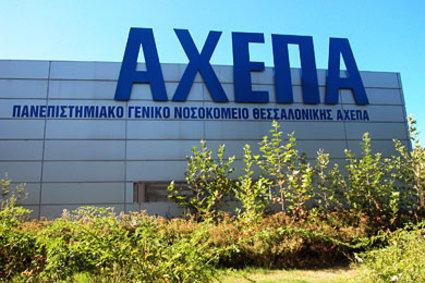Public Health
COVID-19 Response
AHEPA mobilized its chapters in support of COVID-19 relief. Donations of food, PPE, and other good in excess of $1 million to date.
Public Health Assistance
In this time of economic hardship, major Greek hospitals have encountered shortages of supplies used for patient care. The main function of the AHEPA Hospital Committee is to source medical equipment for two Greek hospitals: Evangelismos in Athens and AHEPA in Thessaloniki.
AHEPA Cooley's Anemia Foundation
Cooley’s Anemia, also known as “Thalassemia”, is a rare but fatal genetic blood disorder. It mostly affects people of Mediterranean descent. In its most severe form it requires bone marrow transplants but usually those who are diagnosed experience symptoms of fatigue, weakness, paleness, and slow growth.
Many are unaware they are carriers of the genetic disease until either their child suffers from it or a DNA test result is acquired.
“Let food be thy medicine and medicine be thy food.”
-Hippocrates, 3rd Century B.C.
Thalassemia and the AHEPA Bone Marrow Registry
AHEPA has partnered with Team Be The Match as a way to more easily raise funds for specific children in need of bone marrow matches.
In it’s major form, Thalassemia “Cooley’s Anemia” is fatal and requires bone transplant surgery. In 1990, after the son of one of our chapter members was in need of this surgery, it quickly became obvious that an even greater need existed, thus the AHEPA Bone Marrow Donor Registry was incorporated.
Today, there have been incredible breakthroughs in gene editing that may allow for children to live Thalassemia-free! Read some of the articles we’ve read, regarding the latest advancements in this curative treatment:
Thalassemia FAQ
Possibly. If you are of Mediterranean, Middle Eastern or Asian descent, you are at much greater risk of carrying Thalassemia trait than Northern Europeans.
If both you and your partner have Thalassemia trait, then in each pregnancy there is a one in four chance you will have a child with Thalassemia major.
Talk to your family physician. You have no immediate health concerns to address and no reason to alter your activities. However, you need to consider prenatal planning once you and your partner decide to start a family.
No. Thalassemia is inherited. The type of Thalassemia one has at birth is the same type one has throughout life.
If either you or your partner has normal blood, there is no chance that your children will have Thalassemia major, although they may inherit Thalassemia trait. However, if both you and your partner have Thalassemia trait, then in each pregnancy there is a one in four chance you will have a child with Thalassemia major. Currently, prenatal diagnosis is the only method to reduce the incidence of Thalassemia major.
Talk to your family physician. A simple blood test will detect whether you carry Thalassemia trait.
The blood test is relatively inexpensive, and may be covered by medical insurance. Contact your insurance company representative for a determination of benefits
Absolutely not. Without the blood test, Thalassemia trait remains undetected because it does not affect one’s health or activities. However, it is vital that you learn whether you carry Thalassemia trait before starting a family.
The main treatment for Thalassemia major is regular blood transfusions, and medication. Most children who have these transfusions can live normal, full lives.
Contact The AHEPA Cooley’s Anemia Foundation or your family physician to learn more about Thalassemia.

AHEPA Hospital, Thessaloniki
Since 1947, AHEPA has supported the Aristotle University of Thessaloniki with the AHEPA Hospital wing. It has helped over 10 million patients and continues to serve the community of Thessaloniki today.
Helping Patients Since 1947
AHEPA Hospital and Aristotle University in Thessaloniki, Greece
